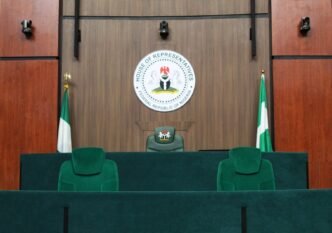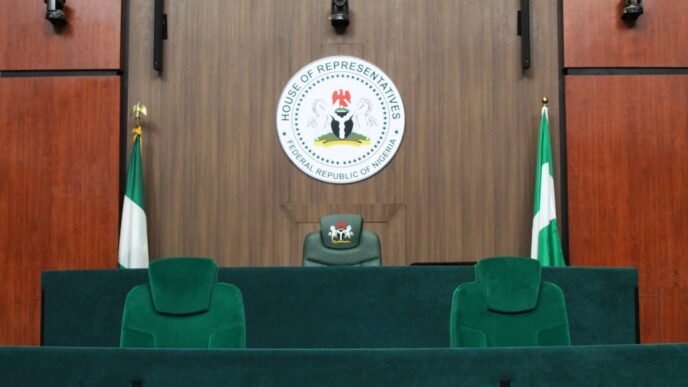HB. 1649
A BILL FOR AN ACT TO ALTER THE PROVISIONS OF THE CONSTITUTION OF THE FEDERAL REPUBLIC OF NIGERIA, 1999 (AS AMENDED) TO VEST THE INDEPENDENT NATIONAL ELECTORAL COMMISSION (INEC) WITH THE POWER TO CONDUCT LOCAL GOVERNMENT AREA COUNCIL ELECTIONS AND FOR RELATED MATTERS.
This Bill seeks to alter Section 197, 201 and 202 of the Constitution to give the
Independent National Electoral Commission (INEC) the powers to carry out Local
Government Area Council elections, rather than the State Independent Electoral
Commission. The Bill Progress-Committee.
Nigeria’s National Assembly is currently considering a pivotal piece of legislation, HB. 1649, aimed at amending the 1999 Constitution to transfer the responsibility of conducting Local Government Area (LGA) elections from State Independent Electoral Commissions (SIECs) to the federal Independent National Electoral Commission (INEC). This proposed change has generated considerable discussion regarding its potential implications for the governance and electoral integrity in Nigeria.
The main argument supporting HB. 1649 centers on the credibility and independence of local government elections. Concerns have been raised about the transparency of elections conducted by SIECs, which are often perceived as being vulnerable to political influence from state governors and ruling parties. Critics allege that this influence results in partisanship and undermines electoral standards. Proponents of the bill believe that transferring control to INEC—which has a nationwide structure and is generally viewed as a more trusted body—could enhance the legitimacy of local elections.
Advocates also argue that having a single body, INEC, manage elections at all tiers—federal, state, and local—would promote greater uniformity in electoral processes across Nigeria. This consistency is seen as essential for fostering a fair electoral environment and ensuring that all levels of government adhere to the same standards and timelines.
Additionally, supporters claim that utilizing INEC’s existing infrastructure, personnel, and expertise could lead to more effective and cost-efficient election management. By streamlining operations through one organization, public funds could be used more effectively, potentially lowering the costs associated with conducting elections.
Deepening democracy at the grassroots level is another critical goal of HB. 1649. The bill aims to enable free and fair local government elections, which are crucial for promoting accountability and empowering citizens to select their leaders genuinely. This empowerment at the local governance level is expected to lead to more responsive governance and development within communities.
Another significant concern the bill seeks to address is the prevalence of “caretaker committees” that some state governors have historically leveraged to avoid conducting timely local government elections. These committees often operate without the mandate of the electorate, which contradicts democratic principles. By empowering INEC to oversee elections, the bill aims to enforce the regular conduct of local elections as mandated by law.
However, HB. 1649 has also faced notable opposition and criticism. One of the primary concerns is that this new responsibility could overburden INEC, already tasked with managing federal and state elections. Critics contend that stretching INEC’s resources, personnel, and logistics could compromise the quality of elections across all levels.
Concerns regarding state autonomy and federalism also resonate in the discourse surrounding the bill. Critics argue that handing control of local elections to a federal body could encroach on the states’ constitutional authority and undermine the principles of federal governance. This potential over-centralization of power raises questions about the balance of authority between state and federal governments.
Political resistance is likely to emerge as state governments may be reluctant to cede control over local politics, which often serve as significant political strongholds. These local councils are vital sources of patronage that bolster the influence of state governors and political parties.
Moreover, for HB. 1649 to become law, it would require a constitutional amendment, needing a two-thirds majority approval from both houses of the National Assembly and ratification from at least two-thirds of the State Houses of Assembly. This requirement poses a substantial obstacle due to anticipated political resistance from various states.
Critics also warn of the potential duplication of functions and waste of resources that could arise from establishing a federal agency to manage local elections, suggesting that strengthening the current SIECs would be a more prudent approach.
In summary, HB. 1649 aims to rectify perceived weaknesses in the local government electoral framework by transferring oversight to a more widely trusted federal institution. While the bill holds promise for enhancing electoral credibility and uniformity across Nigeria, it also poses challenges related to federal overreach and the practicalities of implementing such an expanded mandate for INEC. The ultimate outcome of this legislation will significantly influence the future of local democracy in Nigeria.










